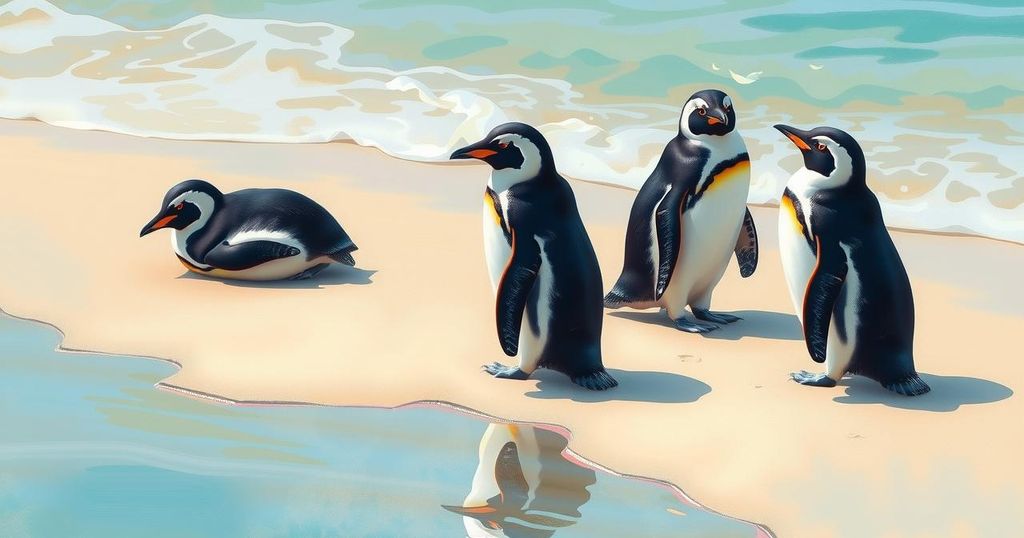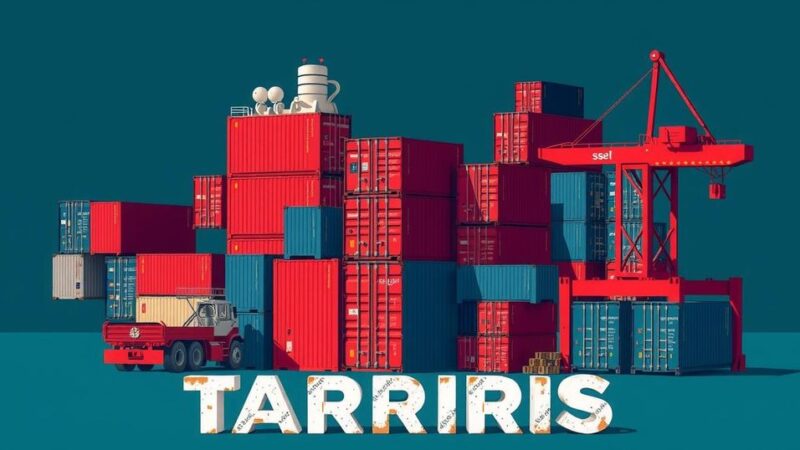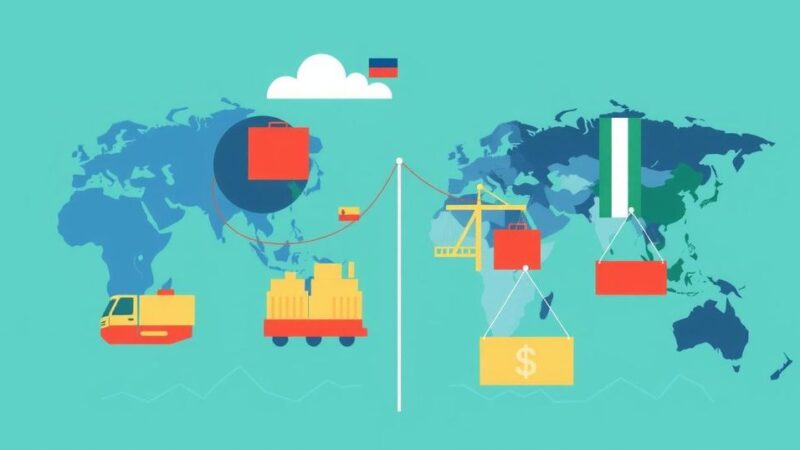The African Penguin population in South Africa, facing extinction, prompts a debate over conservation versus economic interests. A report estimates their colonies are worth R2-R4.5 billion, linking them to thousands of jobs and significant tourism. Historical declines are traced to human activity and environmental changes, with recent legal efforts aimed at improving protections. The potential for penguin tourism remains largely untapped, signaling both an environmental necessity and an economic opportunity.
The conservation of South Africa’s critically endangered African Penguin is embroiled in a debate highlighting the balance between environmental and economic rights. Environmental groups advocate for expanding no-fishing zones around penguin colonies, while the pelagic fishing industry, asserting its integral role in the economy, claims to provide 5,100 jobs and contributes R5.5 billion annually.
Conversely, a report by Anchor Environmental Consultants estimates the value of South Africa’s penguin colonies to be between R2 billion and R4.5 billion in 2023, linking them to 1,046 to 4,611 jobs. This valuation reflects various benefits including tourism, property values, and educational impacts associated with the penguins, emphasizing their contribution to the economy.
The report highlights significant tourism potential, especially in Simon’s Town, which has seen a surge in visitor numbers over the last few decades. The colony ranks among the top tourist attractions in Cape Town, underlining the economic importance of penguins as South Africa’s popularity as a tourist destination grows.
The plight of the African Penguin has bitter roots in historical declines, with numbers plummeting from 300,000 individuals in the 1950s to merely 8,324 breeding pairs in 2023. Factors such as oil spills, climate change, and increased competition for food from fishing activities have seriously exacerbated this decline.
Despite attempts to protect the species through no-fishing zones established in 2008, penguin populations have continued to diminish, especially due to actions such as ship-to-ship oil transfers in regions where they breed. Recent legal actions taken by conservation groups aim to expand no-take zones around penguin islands and have led to a settlement to close six penguin islands, although the efficacy of these closures remains uncertain.
In conclusion, the future of South Africa’s African Penguins hinges on effective strategies that balance economic interests with environmental protection. While the pelagic fishing industry presents significant economic arguments, the rising valuation of penguin colonies illustrates their intrinsic worth. Protection measures such as the planned closure of no-fishing zones may play a crucial role in reversing the alarming decline of this iconic species, thereby supporting both ecological health and the nation’s reputation as a steward of biodiversity.
Original Source: www.bizcommunity.com






